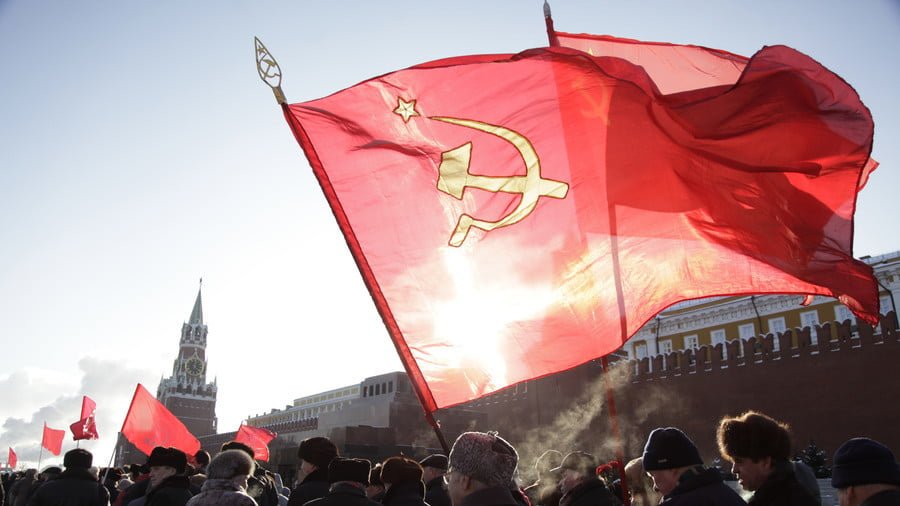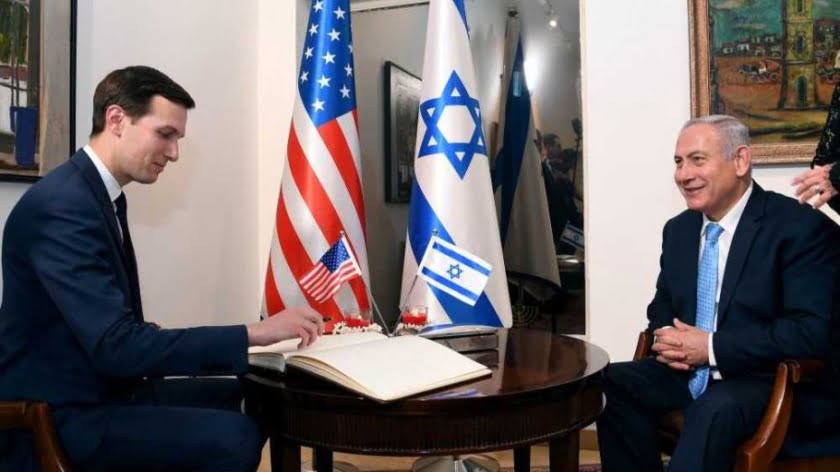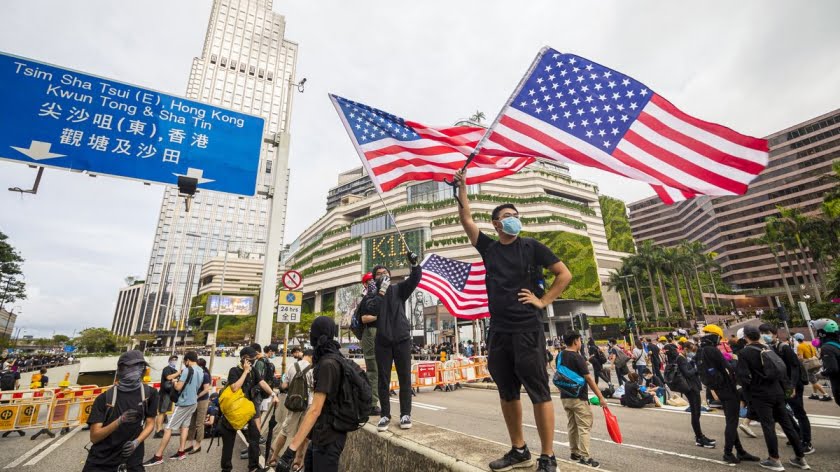Evil Empire 2.0: West Conjures Up Ghost of Soviet Past to Vilify Russia
Listening to Western media and politicians these days, you would never guess that nearly three decades ago the Soviet hammer and sickle lowered for the last time over the Kremlin, replaced by the Russian tricolor.
Ironically, the collapse of the Soviet Union – an empire made up of 15 republics encompassing some 12 million square miles – has been far more difficult for the West to come to grips with than it has been for the Russian people, who witnessed the decline and fall firsthand. Indeed, many Westerners are ardent believers that the Soviet Union is still alive and kicking.
This apparent paradox was foreseen many years ago by the Soviet political scientist, Georgi Arbatov, when he told a US diplomat shortly after the collapse: “We are going to do the worst thing we can do to you. We are going to take your enemy way from you.”
Thirty years later the West still revisits the grave of its former Soviet nemesis, yearning for its rise from the ashes. Just this week, Republican Senator Lindsey Graham conjured up the spirit of America’s ex arch-enemy when responding to Donald Trump’s suggestion that Russia be readmitted into the G7.
“There’s no way I would ever agree to give [Russia] that legitimacy,” Graham said. “The Soviet Union may have fallen, but the evil it represents is alive and well in Putin’s Russia.”
“He is no friend of the United States,” he continued. “He’s dismembering democracies everywhere and trying to do so in our own backyard.”
After Pres. Trump suggested reinstating Russia to the G-7, @LindseyGrahamSC calls that “a mistake.”
“[Putin] is no friend of the United States… there’s no way I would legitimize him.” pic.twitter.com/npSjKwJcyG
— This Week (@ThisWeekABC) June 10, 2018
In order to put to rest this tortured Soviet ghost, it needs to be reminded that the business of “dismembering democracies” has been solely the purview of the US and its NATO allies. At a time when the world lacked a countervailing force to check Western military aggression – which the Soviet Union duly provided – the West eagerly pursued a regime-change agenda that not only destroyed viable governments, like Iraq and Libya, but set in motion a migrant crisis that the European Union is at pains to control today.
For its part, Russia has resorted to military action against a foreign country on just one occasion. In August 2008, in response to a deadly attack on Russian peacekeepers in South Ossetia, Russian forces entered Georgian territory. Even the EU concluded that the government of ex Georgian President, Mikhail Saakashvili, was to blame for sparking the five-day conflict.
So, what is the reason for Graham’s gross distortion of the historical record? And why the apparent need to conflate modern, democratic Russia with the vanquished Soviet Union? For the answer, it is always helpful to follow the money trail, and unsurprisingly it leads straight to the door of America’s largest defense contractors.
It is no secret that Lindsey Graham – perhaps second only to John McCain – is one of the most notorious war hawks in Washington. During his failed run for the 2016 presidential elections, the Super PAC supporting his bid collected $2.9 million, the bulk of which came from the coffers of defense contractors.
Hillary Clinton, meanwhile, another darling of the military industrial complex, who raked in just under $500 million from the defense industry for her presidential bid, was portraying Russia as some sort of Soviet-style menace as early as 2012.
Discussing Vladimir Putin’s efforts to promote greater economic integration in Eurasia, Clinton depicted the venture as a “move to re-Sovietize the region.” Unfortunately, no one challenged the Democrat to explain how one of the largest capitalistic ventures in the world could be confused with communism.
Clearly, Western leaders are intentionally dragging up memories of the bygone Cold War-era in order to incite an atmosphere of fear and uncertainty – the ultimate stimulant for military spending, corporate profit-taking and, last but not least, NATO sprawl up to Russia’s border. For defense sector lobbyists, the rhetoric is music to the ears.
The majority of the Russian ad spend happened AFTER the election. We shared that fact, but very few outlets have covered it because it doesn’t align with the main media narrative of Tump and the election. https://t.co/2dL8Kh0hof
— Rob Goldman (@robjective) February 17, 2018
The threat of peace does not boost the bottom line of the defense contractors, who represent some of the most influential people in Washington, while the politicians who are most hawkish on foreign policy are richly rewarded. In short, it is a marriage made in hell, with a ‘honeymoon’ somewhere in the Middle East. Russia, due to its stunning resurgence, which was put on full display in Syria as it foiled another Western scheme for regime change, has also appeared on the radar.
Thus, we see Western politicians and pundits on both sides of the Atlantic attempting to make a strained connection between Russia and the Soviet Union, and even more now with ‘Russiagate’ and the Skripal saga in full hysteria mode. This is clearly being done in an effort to isolate Russia on the global stage.
Britain’s Ambassador to the United Nations Karen Pierce, for example, in a heated debate with her Russian counterpart, Vassily Nebenzia, lectured Russia for its ‘regrettable behavior’ in Syria, saying: “In respect of Karl Marx, I think he must be turning in his grave to see what the country that was founded on many of his precepts is doing in the name of supporting Syria by condoning the use of chemical weapons on Syrian territory.”
One wonders how such a high-ranking official could possibly understand what is happening in Syria today when the collapse of the Soviet Union seems to have escaped her attention. Meanwhile, perennial Russophobes, which make up the overwhelming majority of fellowship positions among US think tanks, regularly argue that Russia is somehow ‘nostalgic for empire,’ and determined to ‘restore the glory of the Soviet times.’
Anne Applebaum, a member of the influential Council on Foreign Relations, gave a distorted version of reality on Ukrainian television, arguing that Vladimir Putin is interested in “recapturing the Soviet position on the world stage.” There is just one problem with that position: Not a single thing the Russian leader has done or not done to date would reasonably support that thesis. But good luck finding an academic to challenge such misguided notions.
Whenever the tiny cadre of Western academics strays from the reservation and argues from the Russian perspective, they are exiled to academia’s version of the Gulag Archipelago seldom to be heard from again. Stephen Cohen, emeritus at Princeton University and NYU, is referred to as “America’s Putin apologist” among his peers for daring to suggest there might just be an alternative reality to the mainstream media madness we are being fed about ‘Putin’s Russia’ on a daily basis.
Speaking on the subject of ‘Russiagate,’ Cohen acknowledged what so few academics have the intellectual courage to say: there is no evidence whatsoever to show that Putin ordered the hacking of the Democratic National Committee in 2016. “The intelligence committees have never produced any evidence,” Cohen said. “They never even did a forensic exam of the DNC computers.”
Obviously, this sort of ‘crazy talk’ is not well received in US policy circles, and if it were not for Cohen’s serious credentials as a leading expert on Russia he would be simply ‘exiled’ from the mainstream discourse. That is because the US has entered a dark, unrecognizable place where top officials, like James Clapper, the former Director of National Intelligence, can actually describe the Russian people in racist overtones, saying they are “genetically driven to co-opt.”
The reality is that the West is acquiring a dangerous totalitarian mindset (genetically driven?) in that it has become – similar perhaps to the Soviet times – nearly impossible to question anything that the mainstream media, think tanks and academia disseminates.
“The parting with the Union of Soviet Socialist Republics will be long and difficult,” Izvestia warned with uncanny foresight. “We must acknowledge that many will not believe or agree … with the death warrant written in Minsk and confirmed in Alma-Ata.”
Indeed, nostalgia for the Soviet times – complete with a new cold war and lucrative arms race – is so rampant in the West that its roots are beginning to crack through the surface. Such a repressive climate chokes off all any discussion that presents a challenge to the official narrative which proclaims, as absolute fact, that ‘Russia is aspiring for Soviet-style empire,’ a groundless assertion that is every bit as ridiculous as it is dangerous.
If the current trend towards the homogenization of thought continues – like a chapter torn from Orwell’s 1984 – Westerners will awake one sunny morning to a shiny new totalitarian state of their own design and making, complete with jackboots on the streets, under an awning falsely proclaiming ‘democracy’.







